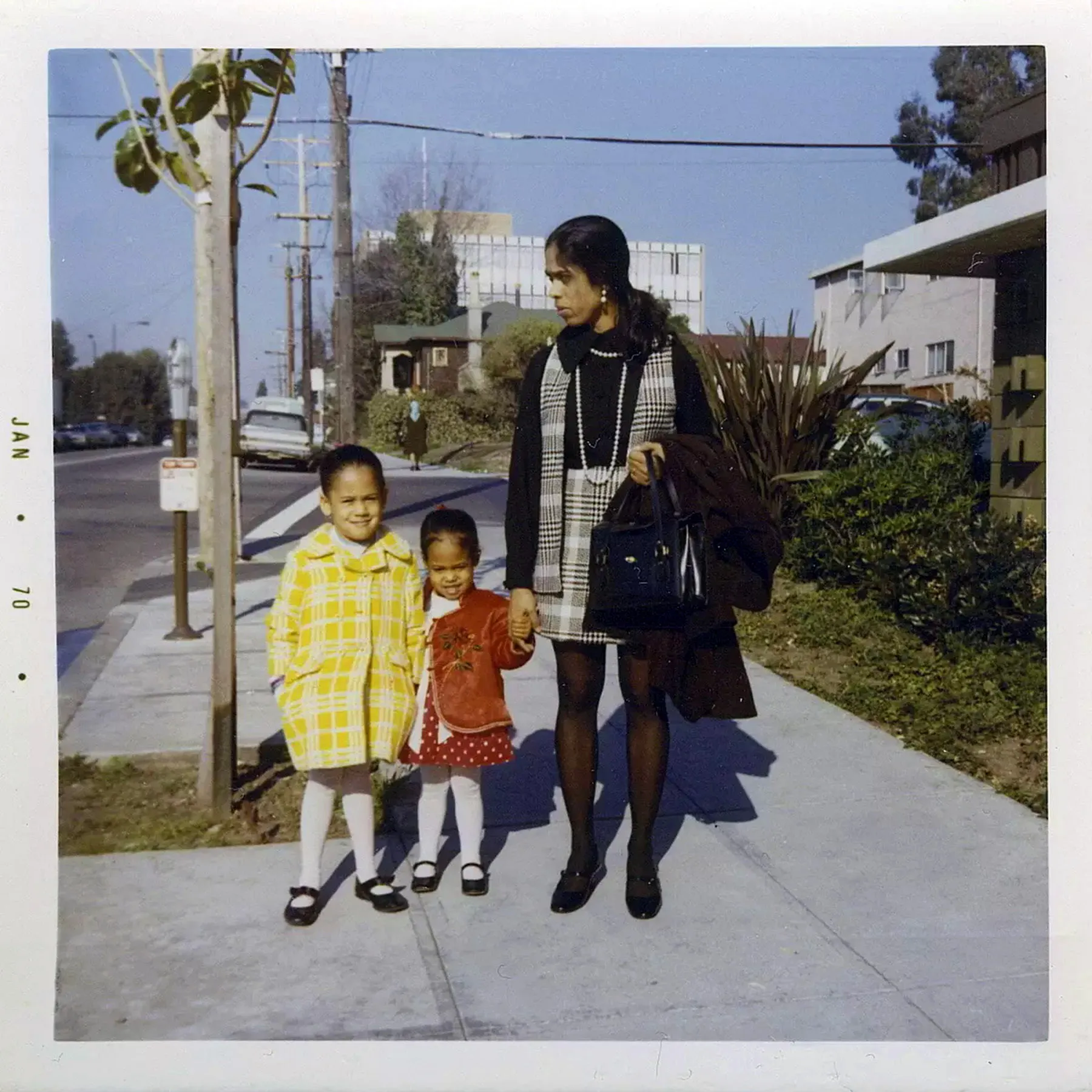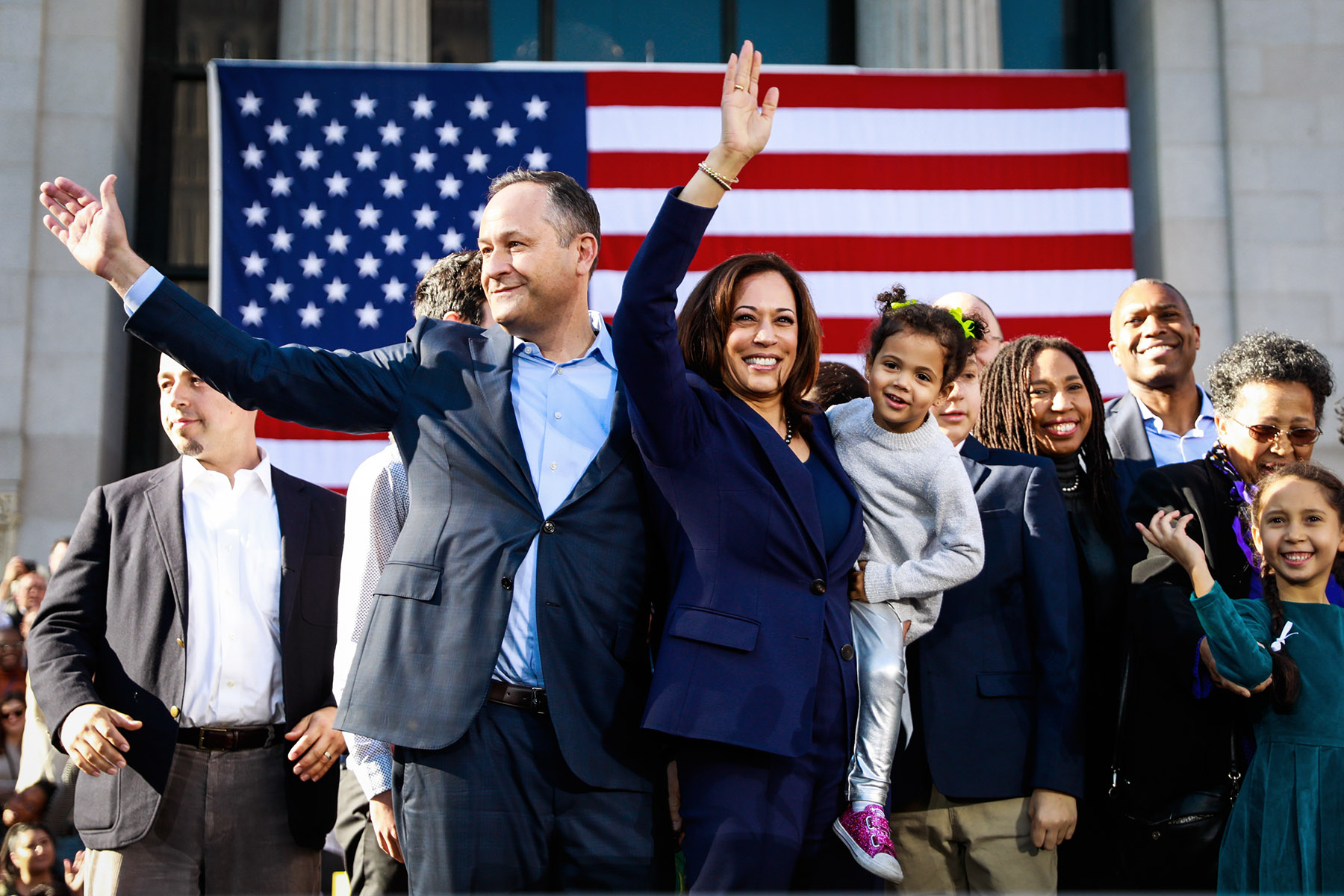2024-07-24 05:00
5:00
July 24, 2024
am
When she speaks about the economy, Kamala Harris often talks about the mothers in her life.
Her own mother, Shyamala Gopalan, was a single parent who worked as a breast cancer researcher. She’d pack lunches before Harris and her sister, Maya, woke up in the morning, and pay the bills at night after the girls went to bed.
When Gopalan worked late, Harris and her sister had their “second mother”: Mrs. Regina Shelton. Shelton lived just two doors down from the family’s duplex in Berkeley. The wife of a pastor, she ran a child care center where she watched the girls. On Sundays, she’d shuttle them to church in her station wagon. Shelton became such a fixture of Harris’ life that when she was sworn in as vice president, Harris took the oath of office with her hand on Shelton’s family Bible.
When Gopalan developed cancer later in life, she refused to move to a nursing home. Harris did her best to support her mother’s wishes, cooking meals and caring for her while she struggled through chemotherapy. Gopalan died in home hospice care in 2009.
About a decade ago, Harris became a second mother herself to her husband’s children, Ella and Cole. “My heart wouldn’t be whole, nor my life full, without them,” she wrote in 2019.
They gave her a nickname: “Momala.”
Those experiences have all shaped Harris’ position that caregiving is a central pillar of the American economy. She’s been a vocal advocate of paid family and medical leave, affordable child care and improving long-term care — a position she’s expected to bring with her as she runs for president as the presumptive Democratic nominee.
 Kamala Harris (left) stands with her sister, Maya, and mother, Shyamala, in Berkeley, California, in 1970.
Kamala Harris (left) stands with her sister, Maya, and mother, Shyamala, in Berkeley, California, in 1970.
(Kamala Harris Campaign)
Read Next:

Read Next:
$81M in 24 hours: How the Harris campaign could turn women donors into a force
During her speech Monday, little more than 24 hours after President Joe Biden bowed out of the race and endorsed her to take his place, she wasted no time connecting the dots. For Harris, the economy works if it’s working for moms, parents, family caregivers and the workers who power those industries — yet who are currently among the lowest paid in the country. A vast majority are women and women of color.
“We believe in a future where no child has to grow up in poverty, where every person can buy a home, start a family and build wealth. And where every person has access to paid family leave and affordable child care,” Harris told staff at her campaign headquarters in Wilmington, Delaware. “Together we fight to build a nation … where every senior can retire with dignity.”
The emphasis on the care economy has excited caregiving advocates and parents who have been hoping for candidates to finally put the issue at the center of their campaigns, not on the fringes.
“I think she’s the moms’ candidate,” said Reshma Saujani, the CEO and founder of Moms First, an organization that pushes for child care and other family policies. “Being a woman and being, quite frankly, a mom, she understands the issues on a level that we need. If there’s ever been a moment where we need a female president, that moment is now.”
The sentiment was echoed by Nicole Jorwic, chief of advocacy and campaigns at Caring Across Generations, a group focused on supporting older adults, people with disabilities, and the paid and unpaid family caregivers they rely on. “She has a real understanding, not just of the difficulties of being a caregiver, but also the economic impact of care,” Jorwic said.
Republican candidates Donald Trump and JD Vance have not yet discussed which care policies they’d enact, but family was a major theme at the Republican National Convention last week. “I want to give my kids the things that I didn’t have when I was growing up,” Vance said at the convention, later adding that politics is “about grandparents all across this country, who are living on Social Security and raising grandchildren they didn’t expect to raise.”
But Trump and Vance’s vision of family, which is focused on a “traditional” heterosexual nuclear structure, will be very different from Harris’.
“If you are looking to speak to people where there is a married household, where there is a breadwinner father, homemaker mother and 2.2 children, you’re not going to find a lot of families that fit that description,” said Melissa Boteach, the vice president of child care/early learning and income security at the National Women’s Law Center Action Fund. “Harris understands that through both her lived experience as well as being in conversation with real families across the board for decades of her career.”
Boteach, Saujani, Jorwic and other advocates are energized by how much Harris has focused on care policies as a vice president and prior to her time in the Biden administration.
In 2019, when she ran in the Democratic presidential primary, she crafted a platform centered on family issues. Harris proposed creating a six-month paid family and medical leave policy, one of the most ambitious paid leave proposals Democrats have put forward, with a provision for “chosen family” that would allow LGBTQ+ parents, as well as others, to also take leave. It was far beyond the four-week universal paid leave policy Biden included in his 2021 economic package that ultimately failed to pass the Senate. The United States remains one of a handful of countries that offers zero paid parental leave at the federal level.
On Tuesday, a coalition of paid family leave groups called the Care Can’t Wait Coalition spent $500,000 on a 60-second ad detailing how Harris cared for her mother at the end of her life, calling her “unshakable” in her support for paid family and medical leave, child care and home care for older adults and people with disabilities. The ad ends with a photo of Harris; her husband, Doug Emhoff; Ella; and Cole.
Read Next:

Read Next:
How a Kamala Harris candidacy could supercharge Democrats’ message on abortion
Telling Harris’ personal story will be “terribly important” in mobilizing voters, and particularly care workers, who have long been excluded from workplace protections because of sexism and racism, said April Verrett, the first Black woman president of the powerful service workers’ union SEIU. The union was the first to endorse Harris and is part of the Care Can’t Wait Coalition.
As a senator, Harris sponsored the National Domestic Workers Bill of Rights to shore up protections for the more than 2 million home care and child care workers who face significant wage theft, discrimination and sexual harassment. About 92 percent of them are women, mostly women of color.
“The work that these women do is the work that enslaved women did. It was not respected then. In many of the same ways, it’s not respected now,” Verrett said. “What excites me the most is what this means … for women caregivers who often are not valued for their contributions to our country. They know firsthand that Vice President Harris sees them.”
As a senator and during the 2020 Democratic primary, Harris also supported a version of Medicare for All, Medicare for America, which would have funded robust long-term care at home for older adults and people with disabilities. Sen. Bernie Sanders’ original Medicare for All plan in 2016 only included short-term rehabilitative stays in nursing homes and other facilities.

“That’s incredibly important and makes us excited to see what [Harris] would put forward for long-term care when it comes to her presidency,” Jorwic said.
During the Biden administration, Harris worked behind the scenes pushing for affordable child care legislation and an expanded child tax credit. She’s also been the face of those announcements, including in April when the administration announced new minimum staffing rules for nursing homes, and last summer when it rolled out a federal rule that capped the cost of child care for very low-income families. When she announced that policy, Harris again told the story of the women who raised her.
“This fight is personal for me,” Harris said then. “My mother often said that if not for Mrs. Shelton, she would never have been able to do the work that she did. Those are the stakes of this work: bringing child care to all families who need it.”
In advocacy circles, emails and texts were flying this week, with advocates hoping that Harris could mount a care-focused presidential campaign that could deliver on the policies the Biden administration ultimately could not. The administration’s centerpiece legislation, known as the Build Back Better package, would have created a universal pre-K system, a federal paid leave policy and poured hundreds of billions into expanding child care and expanding and improving home care for older adults and people with disabilities. But the package died in Congress.
Harris would have an opportunity to resurface that fight, Boteach said. “On care specifically, if past is prologue, this is the right person to be leading this conversation,” Boteach said. “It’s been a clear and clarion message from the beginning that this is the unfinished business of the current Biden/Harris administration and that she will make it a top priority.”
But what Harris’ unique policy positions will be — and how much they’ll differ from Biden’s — are still unknown. Saujani said her group will be watching closely to see how Harris discusses caregiving in the coming weeks.
“We want to hear more from her,” Saujani said. “I want her to basically say, ‘When I am president, not only will I make sure we protect abortion rights, but I will make sure that we pass child care and paid leave — period.’”
Read Next:

Read Next:
What happens next? The process of getting Harris on the ticket
Mia Ives-Rublee, a longtime disability advocate who has headed up the left-leaning Center for American Progress’s Disability Justice Initiative, is optimistic about Harris’s performance on long-term care, aging and disability issues. The issue is personal for Ives-Rublee, who is currently out on short-term disability leave. “Long-term care isn’t just a concept for me. I am dealing with the situation myself. My parents are taking care of me right now,” she said.
Ives-Rublee praised Harris’ personal investment in the disability community and willingness to show up in person. Harris presided over the past two White House anniversary celebrations of the Americans with Disabilities Act.
“She shows a little more of an openness to talking about disability. … I think she’s more open to listening,” Ives-Rublee said. In particular she pointed to a portion of Harris’ disability policy platform for the 2020 presidential primary that proved to be especially unpopular within the disability community, concerned with an obscure Medicaid rule about funding for long-term psychiatric institutionalization.
“When the disability community came back at her, she reoriented and made adjustments,” Ives-Rublee said. These adjustments were never made public because Harris’ campaign ended shortly after, but Ives-Rublee still feels positively about the experience.
However, she noted that the nascent Harris campaign has not yet added a disability policy advisor to their team.
“I think it’s going to be essential for folks in the disability community, from the everyday person, to the organizers to the policy wonks, to ensure that we get disability information into the pockets of her team and push as hard as we can to ensure that our issues are covered,” Ives-Rublee said.
Voters will also be watching.
In Pennsylvania, Meg Krauth recently gave birth to twins. She and her husband, who also have a toddler, both worked in child care but had to leave the field because the pay was so dismal. She now works in child care quality improvement, while her husband went back to school to get a master’s degree. He’s a guidance counselor, bartends on the side for extra money and works at their 3-year-old’s preschool in the summer to qualify for a discount.
Putting their twins in care three days a week would make child care costs bigger than their mortgage. Family can help them on other days, but their parents are getting older — they don’t know how long that arrangement can last before they’re worrying about care at both ends of the generational spectrum.
Krauth remembers watching in dismay as Biden and former president Donald Trump dodged a question about what they’d do to address the child care crisis at the presidential debate last month. Biden briefly touched on it; Trump said nothing. Their later exchange about the merits of their golf swings lasted longer than their debate of child care policy.
With Harris now in the race, Krauth is feeling hopeful again.
“She’s had some really good stances on trying to provide some support for parents and families and really looking at the cost of child care and the cost to women in general of becoming a mother,” Krauth said. “I find it very encouraging.”
Read Next:

Read Next:
Who will Harris choose as her VP? Here’s who could be on her shortlist.
But campaign promises only go so far. In 2020, the Biden-Harris ticket ran on a strong caregiving platform but passed limited legislation while contending with a Congress controlled by Republicans.
“Vice President Harris had a lot of opportunity to do better in the world of child care than what she did,” said Colleen Gerbino, a mom of two in Connecticut, who has a third child due in November.
Gerbino and her husband are middle-income — they don’t qualify for the policies the Biden administration was able to pass that capped child care costs for poor families. They also rely on a combination of part-time day care and help from family for their youngest child because they can’t afford more.
For Gerbino, Harris’ stance on child care so far has been little more than lip service. Because Harris came into Cole and Ella’s lives when they were teenagers, she doesn’t have direct experience finding care for little kids, which Gerbino said she’d like to see from a candidate.
“What I want to hear is, you struggled, too, so you want to change that and you understand what it’s like and here’s the proactive steps you’re taking,” Gerbino said.
For voters like Gerbino, who don’t feel at home with either party, there could still be a long way to go before Harris’ message cuts through. If it does, she’d be hitting on a subject of enormous importance that has gone ignored in nearly every prior election.
She has little over three months left to convince them.

